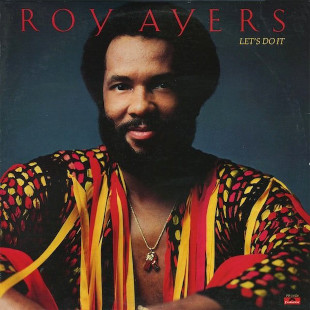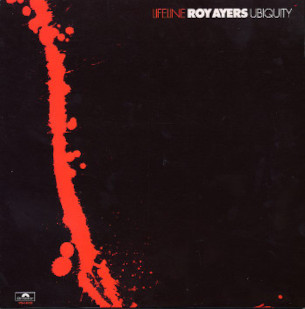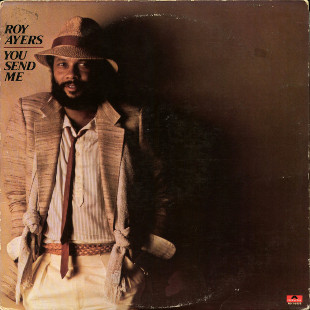
Jazzmatazz, Volume 1: An Experimental Fusion of Hip-Hop and Jazz, is the debut solo studio album by American hip hop recording artist Guru. It was released on May 18, 1993, by Chrysalis Records. Recording sessions took place at D&D Studios in New York. Production was handled by Guru himself, who also served as executive producer together with Duff Marlowe and Patrick Moxey.

Roy Ayers is an American vibraphonist, record producer and composer. Ayers began his career as a post-bop jazz artist, releasing several albums with Atlantic Records, before his tenure at Polydor Records beginning in the 1970s, during which he helped pioneer jazz-funk. He is a key figure in the acid jazz movement, and has been dubbed "The Godfather of Neo Soul". He is best known for his compositions "Everybody Loves the Sunshine", "Lifeline", and "No Stranger To Love" and other that charted in the 1970s. At one time, he was said to have more sampled hits by rappers than any other artist.

Live is a live concert album by American singer Erykah Badu, released in 1997. Released in the fall of 1997, with her debut album Baduizm released earlier that year, Live quickly went double platinum with the radio hit "Tyrone".

"MJB da MVP" is a song by American recording artist Mary J. Blige featuring rapper 50 Cent, taken from her seventh studio album, The Breakthrough (2005). The Cool & Dre-produced track is a cover version of "Hate It or Love It" as performed by The Game and 50 Cent, the first of which also provided a new verse for the official remix of the song. In the new vocal part, Blige relates the ups and downs of her career and expresses thanks to Dr. Dre and The Game for letting her work on a track. She mentions her start in 1991, the release of her first five albums and her sadness by the death of her friend, R&B singer Aaliyah. The song contains elements from "Everybody Loves the Sunshine" by Roy Ayers.

No Stranger to Love is a studio album by American musician Roy Ayers. It was released in November 1979 through Polydor Records. Recording sessions for the album took place at Automated Sound Studios and Sigma Sound Studios in New York City, and at Kendun Recorders in Burbank, California. Production was handled by William Allen and Ayers.

Word on tha Streets is the debut solo studio album by American rapper Bad Azz from Long Beach, California. It was released on September 29, 1998, via Priority Records. It features guest appearances from Big Tray Deee, Kurupt, Lil' Beau, Low Life Gangstas, Ms. Legacy, Outlawz, Snoop Dogg, the Comrads and the Lady of Rage. The album peaked at No. 182 on the Billboard 200 and No. 32 on the Top R&B/Hip-Hop Albums charts in the United States.

Next Friday (Original Motion Picture Soundtrack) is the soundtrack album to Steve Carr's 2000 comedy film Next Friday. It was released on December 14, 1999, through Priority Records and consisted of hip hop and R&B music.
"Let the Good Times Roll" is a song that was recorded by Shirley and Lee in 1956. This song was written by the duo, Shirley Goodman and Leonard Lee.

This is the discography documenting albums and singles released by American singer Jody Watley.

Section 8 is the fourth studio album by American rapper MC Eiht. It was released on June 8, 1999, through Hoo-Bangin' Records and Priority Records. Production was handled by several record producers, including Ant Banks, DJ Slip, Fredwreck, Julio G and MC Eiht himself, with Hoo-Bangin' Records founder Mack 10 serving as executive producer. It features guest performances from Ice Cube, High "T", Mack 10, Soultre, Techniec, Val Young and CMW.

Let's Do It is a studio album by American musician Roy Ayers. It was released in 1978 through Polydor Records. Recording sessions for the album took place at Sigma Sound Studios and Electric Lady Studios in New York City, and at Record Plant in Los Angeles. Production was handled by Ayers himself with co-production by William Allen. The album features contributions from Merry Clayton, Sylvia Cox and Debbie Burrell on vocals, Harry Whitaker, Armen Donelian and Philip Woo on piano, Greg Moore on guitar, Kerry Turman on bass, Bernard Purdie on drums, Chano O'Ferral on congas, Justo Almario on saxophone, and John Mosley on trumpet.

Lifeline is a studio album by Roy Ayers Ubiquity. It was released in 1977 through Polydor Records. Recording sessions for the album took place at Sigma Sound Studios and Electric Lady Studios in New York City, and at Record Plant in Los Angeles. Production was handled by Ayers himself with co-production by Edwin Birdsong and William Allen. The album features contributions from singers Dee Dee Bridgewater and Sylvia Cox, keyboardist Philip Woo, guitarists Calvin Banks, Chuck Anthony, Glenn Jeffrey and James Mason, drummer Steve Cobb, percussionist Chano O'Ferral, saxophonist Justo Almario, and trumpeter John Mosley.

You Send Me is a studio album by American musician Roy Ayers. It was released in 1978 through Polydor Records. Recording sessions for the album took place at Sigma Sound Studios and Electric Lady Studios in New York City. Production was handled by Roy Ayers and Carla Vaughn. The album features contributions from vocalists Carla Vaughn and Merry Clayton, keyboardists Philip Woo and Harry Whitaker, guitarists Chuck Anthony and James Mason, bassists William Allen and Kerry Turman, drummers Bernard Purdie, José Ortiz, Dennis Davis, Howard King and Steve Cobb, percussionist Chano O'Ferral, saxophonist Justo Almario, and trumpeter John Mosley, with guest appearances from Bruce Fisher and Stan Richardson on lead vocals, Ethel Beatty and Tony Gooden on backing vocals, and strings contractor Kermit Moore.

Mystic Voyage is a studio album by Roy Ayers Ubiquity. It was released in 1975 through Polydor Records. Recording sessions for the album took place at Kaye-Smith/Van Ackeren Studios in Seattle, Washington and at Electric Lady Studios in New York City. This album is dedicated to the memory of Julian "Cannonball" Adderley.

Fever is a studio album by American musician Roy Ayers. It was released in 1979 through Polydor Records. Recording sessions for the album took place at Sigma Sound Studios and Electric Lady Studios in New York City, and at Record Plant in Los Angeles. The production was handled by Ayers himself with co-production by Carla Vaughn.

You Might Be Surprised is a studio album by American musician Roy Ayers. It was released in 1985 through Columbia Records. Recording sessions for the album took place at Celestial Sounds and Mediasound in New York City. Production was handled by James Mtume and Roy Ayers with co-production by Philip Field and Edward "Tree" Moore.

Love Fantasy is a studio album by American musician Roy Ayers. It was released in 1980 through Polydor Records. Recording sessions for the album took place at Electric Lady Studios and Sigma Sound Studios in New York City.

Africa, Center of the World is a studio album by American musician Roy Ayers. It was released in 1981 through Polydor Records. Recording sessions for the album took place at Artisian Sound Recording Studio in Hollywood, California and Sigma Sound Studios in New York City. The album is dedicated to Fela Kuti and Bob Marley.

Change Up the Groove is a studio album by Roy Ayers Ubiquity. It was released in 1974 through Polydor Records. Recording sessions for the album took place at Electric Lady Studios in New York City. The album peaked at number 156 on the Billboard 200 albums chart.
This is the discography of American vibraphonist and record producer Roy Ayers.


















